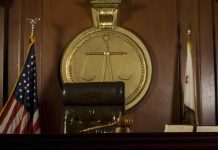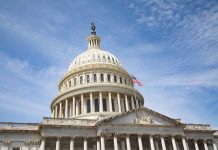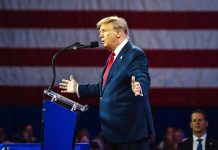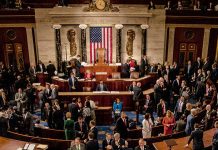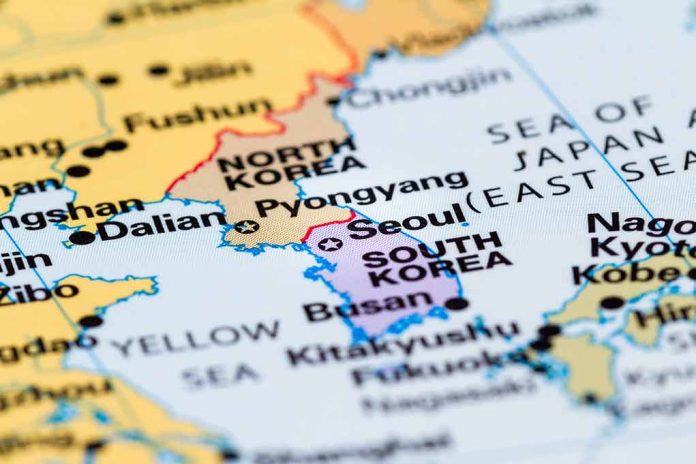
South Korean politics took a turbulent turn when President Yoon Suk Yeol declared martial law, only to reverse the decision amid nationwide protests and political backlash.
At a Glance
- President Yoon’s martial law declaration was swiftly rescinded after mass protests.
- The decision sparked memories of previous military rule, causing widespread unrest.
- The National Assembly passed a resolution ending the martial law declaration.
- Unprecedented dissent emerged both from opposition lawmakers and within Yoon’s party.
A Night of Political Turmoil in South Korea
President Yoon Suk Yeol of South Korea made headlines with a sudden announcement of martial law, which he later revoked due to intense public and political pressure. Yoon cited an attempt by opposition lawmakers to undermine government operations through a legislative dictatorship. His decision evoked the nation’s history of military dictatorship, drawing fierce condemnation from both opposition leaders and the public.
Thousands of South Koreans took to the streets demanding Yoon’s immediate resignation and arrest. Both protestors and political figures labeled the move unconstitutional, leading the National Assembly to pass a resolution quickly demanding the cancellation of the martial law decree. Political opponents criticized the administration’s attempt to control the media and curtail political freedoms.
South Korea faces its gravest democratic crisis since the 1980s as President Yoon Suk-yeol declares martial law, sparking protests and a parliamentary rejection
https://t.co/EGLp2uqUiv pic.twitter.com/RRHrx90WK5
— TRT World (@trtworld) December 3, 2024
Voices of Opposition and Internal Friction
Opposition lawmakers did not hold back in their criticism, with some calling the declaration an illegal and unconstitutional act. Lee Jae-myung, an opposition leader, stated, “We cannot let the military rule this country.” The country’s legislative body moved swiftly to oppose the declaration, voting it down unanimously as unconstitutional.
“It’s an illegal, unconstitutional declaration of martial law that does not meet the requirements. South Korea is a democratic country,” Han Dong-hoon, former Justice minister said. He followed with “We will protect democracy alongside our citizens.”
Internal dissent also emerged within Yoon’s own party. Some members expressed disapproval of the martial law decree, reflecting cracks in party unity. Yoon’s challenges were compounded by an ongoing ethics inquiry, low approval ratings, and criticisms of his domestic policies.
Implications for President Yoon’s Leadership
This political crisis places President Yoon Suk Yeol’s leadership under significant scrutiny. With approval ratings dipping below 20%, Yoon faces criticisms from many angles, including allegations of corruption involving his wife and dissatisfaction with socio-economic policies. Despite his foreign policy achievements, domestically, the president confronts mounting dissatisfaction and political gridlock.
“Yoon certainly is unpopular and frustrated by an inability to do politics,” according to Celeste Arrington, director of the George Washington Institute for Korean Studies.
Such an unprecedented move has reignited public fears of democratic regression in South Korea. The controversies surrounding Yoon’s presidency reflect the country’s broader dissatisfaction with political processes and ongoing challenges to maintain constitutional norms. With the current political landscape shifting, the final ramifications of this crisis on South Korean governance remain to be seen.

